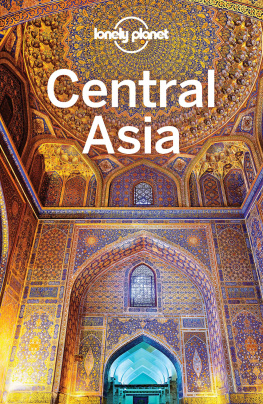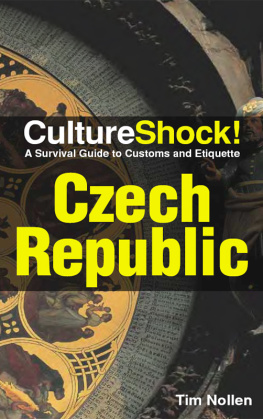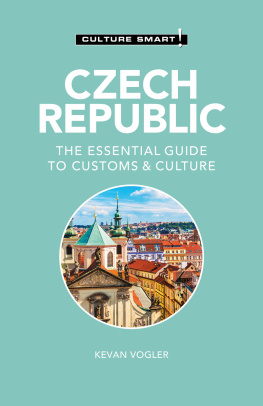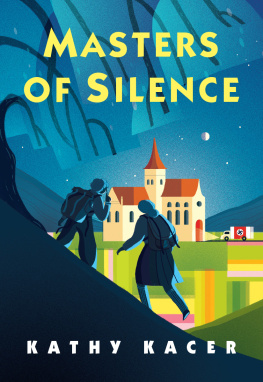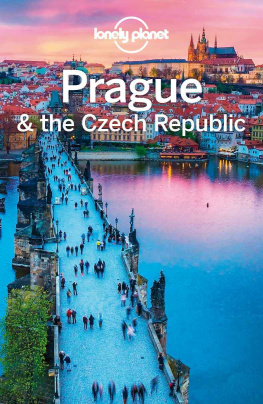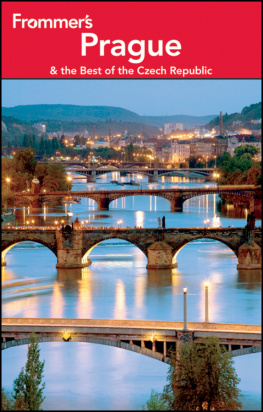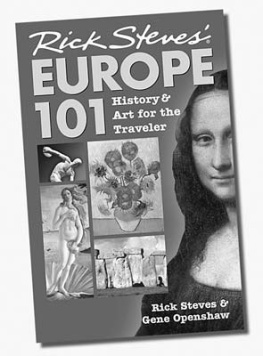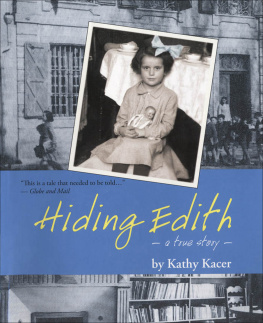coll. - The Underground Reporters
Here you can read online coll. - The Underground Reporters full text of the book (entire story) in english for free. Download pdf and epub, get meaning, cover and reviews about this ebook. year: 2004, publisher: Second Story Press, genre: Home and family. Description of the work, (preface) as well as reviews are available. Best literature library LitArk.com created for fans of good reading and offers a wide selection of genres:
Romance novel
Science fiction
Adventure
Detective
Science
History
Home and family
Prose
Art
Politics
Computer
Non-fiction
Religion
Business
Children
Humor
Choose a favorite category and find really read worthwhile books. Enjoy immersion in the world of imagination, feel the emotions of the characters or learn something new for yourself, make an fascinating discovery.

- Book:The Underground Reporters
- Author:
- Publisher:Second Story Press
- Genre:
- Year:2004
- Rating:5 / 5
- Favourites:Add to favourites
- Your mark:
- 100
- 1
- 2
- 3
- 4
- 5
The Underground Reporters: summary, description and annotation
We offer to read an annotation, description, summary or preface (depends on what the author of the book "The Underground Reporters" wrote himself). If you haven't found the necessary information about the book — write in the comments, we will try to find it.
From award-winning author Kathy Kacer In Budejovice, a quiet village in the Czech republic, laws and rules were introduced to restrict the freedom of Jewish people during the dark days of World War II. In a small shack on the small plot of land...
The Underground Reporters — read online for free the complete book (whole text) full work
Below is the text of the book, divided by pages. System saving the place of the last page read, allows you to conveniently read the book "The Underground Reporters" online for free, without having to search again every time where you left off. Put a bookmark, and you can go to the page where you finished reading at any time.
Font size:
Interval:
Bookmark:
THE UNDERGROUND
REPORTERS
REPORTERS

KATHY KACER

Library and Archives Canada Cataloguing in Publication
Kacer, Kathy, 1954
The underground reporters / Kathy Kacer.
(The Holocaust remembrance series for young readers)
ISBN 1-896764-85-1
1. Jewish childrenCzech RepublicCesk Budejovice
Juvenile literature. 2. Underground newspapersCzech Republic
Cesk BudejoviceJuvenile literature. 3. Reporters and reporting
Czech RepublicCesk BudejoviceJuvenile literature. 4. Cesk
Budejovice (Czech republic)HistoryJuvenile literature. 5. Jewish
ghettos--CzechoslovakiaJuvenile literature. 6. World War, 19391945
Czech republicCesk BudejoviceJuvenile literature. I. Title.
II. Series: Holocaust remembrance book for young readers
DS135.C97A14 2004 j940.5318543713 C2004-905265-9
Copyright 2004 by Kathy Kacer
First published in the USA in 2005
Third Printing 2006
Edited by Sarah Silberstein Swartz
Designed by Counterpunch/Peter Ross
Author photograph by Nicki Kagan
The photographs used in this book were contributed by the following people: Kathy Kacer, John Freund, Jirka Kende, Hana Kende, and Frances Nassau. The photographs of Klepy are from the Jewish Museum in Prague. The photograph of Adolf Hitler reviewing his troops, as well as the three maps
of Czechoslovakia, are from the United States Holocaust Memorial Museum.
Printed and bound in Canada
Second Story Press gratefully acknowledges the support of the Ontario Arts Council and the Canada Council for the Arts for our publishing program. We acknowledge the financial support of the Government of Canada through the Book Publishing Industry Development Program, and the Government of Ontario through the Ontario Media Development Corporations Ontario Book Initiative.

Published by
Second Story Press
20 Maud Street, Suite 401
Toronto, ON
M5V 2M5
www.secondstorypress.ca
For John Freund, with gratitude and admiration,
and for my children, Gabi and Jake.
LEAVING HOME
APRIL 14, 1942
On Tuesday, April 14, 1942, John Freund awoke as he did every morning. He got up, ate breakfast with his family, buttoned his clean white shirt, and put on his jacket. But on this day everything else was different because he was going on a journey. John licked his hand and smoothed down his short, brown, wavy hair, his dark eyes round and uncertain. He took a deep breath and glanced around at the room he had shared with his brother, Karel, for his whole life almost twelve years. Johns soccer ball rested in a corner of the room, along with his table tennis paddle. He was leaving these and other prized possessions behind for this journey. There would be no toys where he was going.
At any other time, the thought of a trip would have been exciting. But these were not ordinary times, and John and his family had no choice about leaving. Why are we being forced out of our home? he wondered. We havent done anything wrong. But these days, his parents just turned away when he asked hard questions. Hurry up, John, his mother called from the kitchen. She was just wrapping up the rolls she had baked. We cant take very much with us, she thought grimly, but we still have to eat.
Johns father entered the kitchen, glancing sadly at his wife. Im taking my doctors bag with me after all, he announced, even though they havent let me treat patients here for some time. The medicines and medical equipment may come in handy wherever we end up.
His wife nodded and turned back to the food she was packing. Its time to leave, John, she called.
John looked down at his bed, piled high with his belongings. Fifty kilograms (110 pounds) of luggage was not very much. Should he take books or clothing? If they were going to be away over winter, he would need warm clothes. He tossed one more sweater into his suitcase and closed it, took another deep breath, and picked up his case. Then John and his family walked out of their home for the last time.
In another part of town, Ruda Stadler was also worrying about what to take when he left home. Most of all, he was worried about the newspapers. There were twenty-two editions of the newspaper, and hundreds of hours had gone into making them. He stared down at the collection. I have to do something with these, he thought desperately. I have to find a way to keep them safe.
What are we going to do with these? asked Ruda as his older sister, Irena, entered the room.
We could take them with us, she suggested.
No, said Ruda, I dont think thats a good idea. He didnt know what was going to happen to his family, but he knew things were not going to be good. There was too much uncertainty ahead too many rumors about terrible conditions and harsh treatment. Besides, the collection of newspapers weighed a lot. He needed the space in his suitcase for clothing and other supplies. But we cant just leave them here.
These were more than just newspapers. They contained the thoughts and ideas of many young people, who had written about the daily events of their lives and their dreams for the future. Despite the hardships of the previous years, Ruda and his friends had poured their hearts into these papers. They had tried, through their writing, to look at life optimistically. They held hope for a peaceful world to come. All of this was reflected in these twenty-two editions; this collection was their legacy. If Ruda left the papers behind in his home, they might be destroyed. If he took them with him, they might still be lost.
Finally, Ruda and Irena came up with a plan. It was the best solution they could think of, and Ruda hoped and prayed that the newspapers would be safe. Still, saying goodbye to the newspapers was like saying goodbye to his best friend.
All across town, Jewish families walked out of their homes that day, leaving behind their precious belongings paintings, books, dishes, clothing, and furniture. Their destination was Theresienstadt, the concentration camp where they were to be imprisoned. They did not know how long they would be away, or what conditions would be like in Theresienstadt. They tried not to think too much about the future. They were worried enough about what they were leaving behind, without tormenting themselves about what they might find ahead. They had their families, at least. A few young children whimpered but mostly the families moved silently toward the factory in town where they would spend the next few days, waiting for trains that would take them to Theresienstadt. One thousand Jewish people walked across town that day, all of them lo st in their own thoughts.
As he moved through the quiet streets, carrying his suitcase, John looked up at the strained faces of his parents. They were trying to pretend that everything would be fine, but he didnt believe them. He didnt like to see them looking so anxious. It made him afraid, and he didnt want to be scared. Maybe the move to Theresienstadt would be an adventure, he thought, trying, as he always did, to be positive. Since the swimming hole had closed and they had stopped writing the newspaper, things had become so lonely in town.
Thoughts of the newspaper and the swimming hole suddenly filled Johns mind, and memories came rushing back to him. Its a funny thing about memories, he realized. You cant stop them once they start. Theyre like water flowing freely from an open faucet; like the fast-flowing waters of the river by the swimming hole where he and his good friends had spent the happiest times he could remember, playing games, forming close friendships, and creating the newspaper that would become the focus of their energy and imagination. For John, walking away from everything he knew, the memories were suddenly overwhelming. He remembered back to 1939 - not so long ago - when all of this had begun.
Next pageFont size:
Interval:
Bookmark:
Similar books «The Underground Reporters»
Look at similar books to The Underground Reporters. We have selected literature similar in name and meaning in the hope of providing readers with more options to find new, interesting, not yet read works.
Discussion, reviews of the book The Underground Reporters and just readers' own opinions. Leave your comments, write what you think about the work, its meaning or the main characters. Specify what exactly you liked and what you didn't like, and why you think so.



